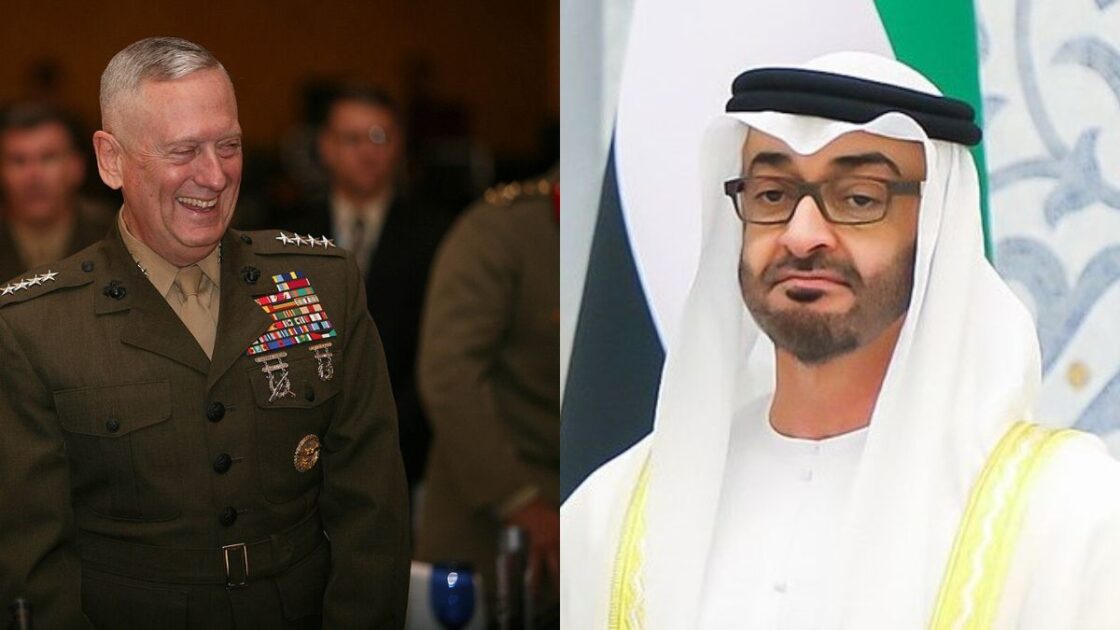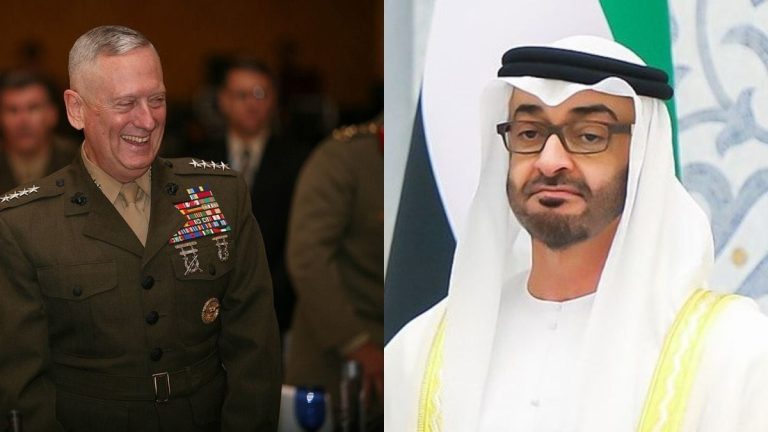opinion

Two years ago, The Washington Post broke the story that hundreds of retired military personnel in the United States had made significant amounts of money by working as “consultants” for foreign countries. Many of these veterans are retired generals and admirals, and thanks to an exhaustive legal battle with the federal government, The Washington Post was able to highlight this side of the hustle of America's most trusted leaders.
Questions have arisen thanks to this discovery, such as how these retired generals and admirals can balance their loyalty to the United States against the huge checks they draw from foreign governments while testifying before Congress on various foreign policy issues. Does the pressure imposed by the US government on them make them essentially proxy lobbyists at best, and foreign agents at worst among those who sign their “advisory” checks?
But perhaps the most troubling of all the Washington Post revelations is the “advisory” activity of one of the most beloved US Marine generals and former Secretary of Defense. General “Mad Dog” Mattis served as an “advisor” to the United Arab Emirates.
The suspicious details behind the non-disclosure, possible falsification of official documents, and connection to the current turbulent situation in Yemen will shock you.
Shhhhhhhhh…
The United Arab Emirates, or UAE as it is commonly referred to, is not the only foreign country known to employ American military veterans. However, they have employed more retired military personnel than any other foreign country.
One of these retired American veterans is none other than retired General and former Trump administration Secretary of Defense James Mattis. In 2015, General Mattis applied to serve in the United Arab Emirates at the request of his old friend Sheikh Mohammed bin Zayed Al Nahyan.
The two men became very close when General Mattis was head of US Central Command during the Arab Spring in 2011. The 2015 request came at a time when the UAE was working to help crush the civil war in Yemen with Saudi Arabia.
RELATED: Biden torn: US president wears 'Ukraine tie and Ukraine pin' as he pleads for more money for Ukraine
General Mattis wrote in his request:
“My duties will include reviewing the UAE’s military situation, initially focusing on the Yemen campaign, with a view to providing military advice.”
The request would not be exciting news, but General Mattis and the State Department did their best to hide it. In fact, if you look at General Mattis' resume and watch his public confirmation hearing for Secretary of Defense, it's both interesting and suspicious that he omits this stage of the hiring.
Some members of Congress and some diplomats in the Middle East were allegedly aware of General Mattis' involvement as an advisor to the UAE, but not everyone. But what is really strange is the issue of General Mattis' salary for the work in question.
Did he do that or didn't he?
In the same application, General Mattis wrote:
“I will be compensated.”
However, General Mattis claims that he was not paid for his services. Robert Terrier, co-chairman of the Cohen Group where General Mattis currently serves as a senior advisor, says:
“He neither sought nor received any compensation from any foreign government at any time.”
Then the question remains: Why did General Mattis write in his request that he would be compensated? Mr. Terrier offers this explanation:
“General Mattis sought the most stringent level of review for this request. This top-level review was triggered by describing the role as a paid position, even though General Mattis neither requested nor received any compensation.
So, bottom line…to ensure he received the highest level of scrutiny to keep his powder clean, General Mattis intentionally lied on an official document? Let's put this aside for a moment and assume by this suggested logic that this was just a misguidedly honest attempt to stay above any perceived transgression.
It took two months for General Mattis' request to be approved. In comparison, other applications usually take from 8 months to a few years.
General Mattis' request received approval in record time against rigorous scrutiny. In 2019, General Mattis again applied to work with the UAE government as a featured speaker at a conference in Abu Dhabi.
RELATED: CNN gets angry over Tucker Carlson going to Russia to meet Putin
In his application, he answered the question, “Will you be paid for the duties you perform?” As follows:
“Yes, the standard reward for all presenters of this lecture series is US$100,000 plus reimbursement for travel and accommodation costs.”
However, you guessed it, General Mattis claims he received no compensation. The reasoning behind his application is the same reason Mr Terrier gave for the 2015 application.
There's nothing fishy here…
Communication possible?
So what does this news that General Mattis is one of many other retired generals and admirals working as a bank to “advise” foreign governments have to do with anything of real consequence today? Besides the fact noted earlier in this article that allowing this practice creates an obvious conflict of interest between highly influential military leaders in Washington, D.C., and the defense industry, it may have several connections to the rapidly escalating conflict in the Red Sea.
President Joe Biden recently approved counterstrikes against Iranian targets in the Middle East in response to a drone strike in Jordan that killed three U.S. service members. This drone attack followed more than 150 attacks on US assets in the region since October.
Some of these attacks were thanks to Yemen's Houthi movement, which has been steadily attacking American and British ships in the Red Sea. So, where is the relationship between General Mattis, who worked for the UAE in 2015, and Yemen?
A recent BBC investigation alleges that the United Arab Emirates, the on-and-off employer of General Mattis, has been funding politically motivated assassinations in Yemen since 2015. Other whistleblowers in this investigation include a former US Navy SEAL and COO of US Air Force. American private security company Spear Operations Group Isaac Gilmore said he was one of several people hired by the UAE to assassinate people in Yemen.
These retired military personnel like Mr. Gilmore allegedly not only carried out assassinations, but trained UAE units in the art – units such as the Emirati-funded Southern Transitional Council subunit known as the Counter-Terrorism Unit. The STC's counter-terrorism unit includes 11 known al-Qaeda members, including Nasser al-Shaiba, the prime suspect in the USS Cole attack that killed 17 sailors in 2000.
RELATED: Chuck Schumer says 'border' bill must pass or US troops will have to fight Russia
the point
Although interestingly, whether or not General Mattis was paid is not the main issue surrounding this side hustle that retired American military leaders rely on. General Mattis's involvement and possible connection to what is currently happening in Yemen and the Middle East in general is just a secondary symptom of the overarching malady that is paralyzing US foreign policy.
Allowing retired American military leaders to serve as “advisers” and “consultants,” whether paid or unpaid, opens them up to easy manipulation by our adversaries and enemies around the world. The testimony these men provide before Congress helps shape funding for military aid, humanitarian aid, international infrastructure projects, and defense spending.
The defense contractor boards these men serve benefit directly from the “advice” and “counsel” they provide to foreign countries on the one hand from the mouths of their own and American lawmakers on the other. The question we must ask ourselves is: Are these “patriots” loyal to the United States, or are they loyal to their own wallet?
The next question is: What motivates more…peace or prolonged hostility?
It's time to support and share the sources you trust.
The Policy Insider ranks third on Feedspot's “Top 100 Political Blogs and Websites” list.

